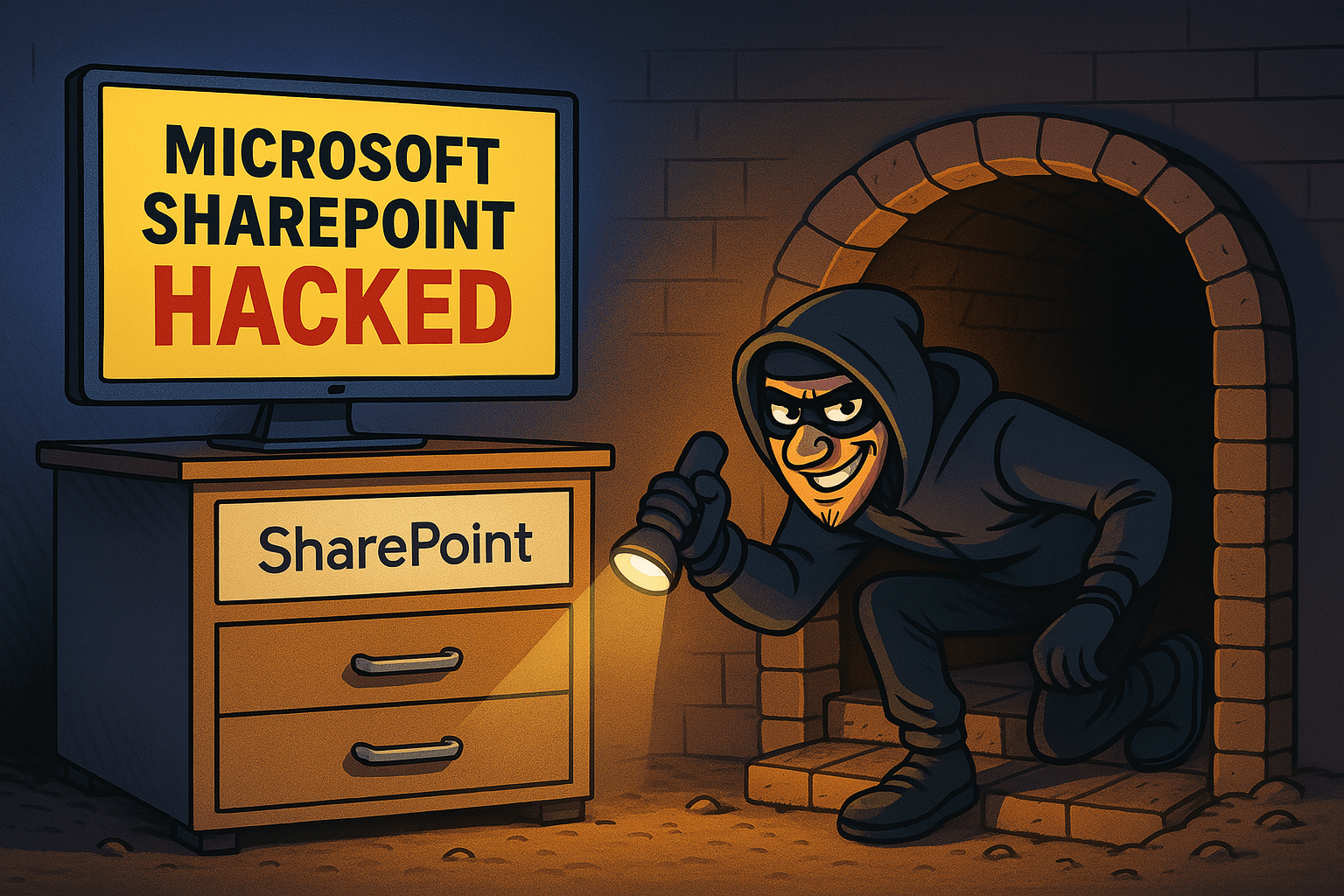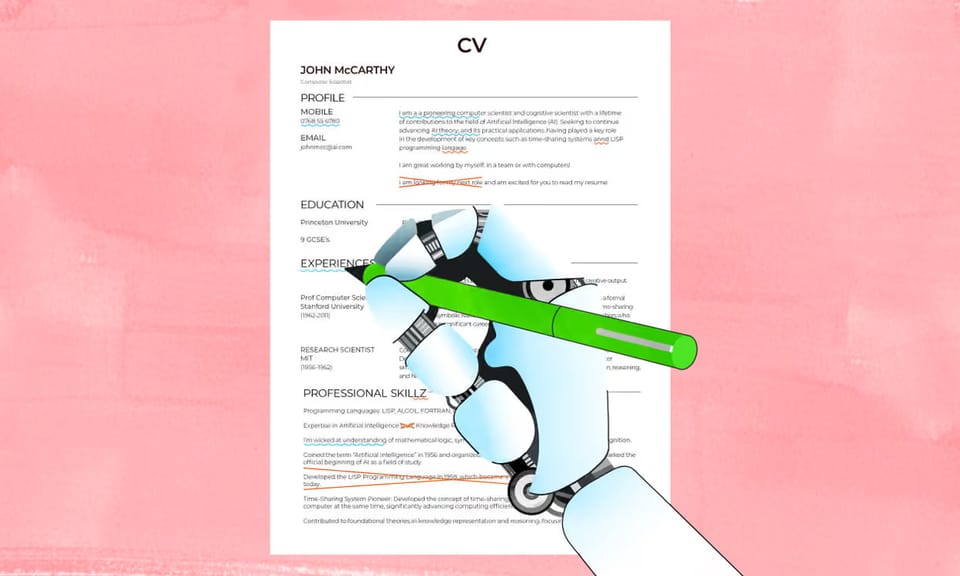Microsoft SharePoint Got Hacked, Should You Even Care?


Picture this: It’s just another day. You're sipping coffee, scrolling through emails, wondering how many unread messages it takes before Gmail officially considers you irresponsible (my guess: around 2,473).
Then BAM! A headline pops up: Microsoft SharePoint Hacked. You probably think, “Great, another tech thing I know nothing about. Should I even care?” Well, buckle up, my friend because yes, you definitely should.
First things first, here’s what actually happened: On July 18th, 2025, cybersecurity researchers found out that hackers discovered a sneaky little vulnerability in Microsoft SharePoint. A security flaw nobody even knew existed, except the hackers. Think of it like burglars finding a secret tunnel under your house that leads straight to your safe and your fridge.
The hackers didn't just mess around in someone's online scrapbook. Nope. They targeted organizations like the U.S. government, hospitals, major universities, energy companies, and even telecom giants in Asia and Europe. This wasn’t just a tiny incident either; we're talking tens of thousands of affected servers worldwide. It’s like the digital equivalent of leaving your keys under the doormat for literally anyone to find but worse.
Maybe you’re thinking, “Wait, what exactly does SharePoint even do?” Fair question. SharePoint, in plain English, is like a giant digital filing cabinet or online library. Organizations use it to store, share, and organize everything from boring HR paperwork to secret future product designs that are supposed to change the world or at least improve microwave popcorn. In other words, if your company or the businesses you deal with use SharePoint, a hacker getting access to this system means potentially accessing some very sensitive stuff.
Alright, let’s say you’re just an everyday American thinking, “This doesn't affect me. Why should I care?” Well, imagine your bank, hospital, or local DMV storing your personal data in SharePoint. Now picture someone you don't know having access to your address, social security number, or medical records. Suddenly, this sounds like a really bad episode of Black Mirror, doesn't it?
But wait, let’s zoom in if you run or work in a business whether you're a CEO, department head, or the guy who forgot to mute himself on the last Zoom call (we heard you munching those Doritos, Jerry). You absolutely need to care. Why? Because losing data can cost millions. Not just money but also your company’s reputation, customer trust, and potentially your job.
Odds are, your business might be one of them, or at least your partners or suppliers might be. That's a sobering thought, huh? And if you're in healthcare, finance, education, or government, those odds skyrocket. Suddenly, cybersecurity isn't just the IT department’s headache; it’s everyone’s problem.
In a situation like this SharePoint chaos, knowing about companies who deal specifically with this stuff is genuinely useful. It’s like knowing a plumber before your basement floods (and your mother-in-law’s visiting that same weekend). This is why I think it's important to mention orgs like Kobalt.io.
Think of Kobalt.io as your company's super-smart, slightly paranoid friend who triple-checks the locks on your doors before bed. They help businesses spot vulnerabilities early, fix them quickly, and prevent hackers from sneaking in.
If you’re a CEO or Founder, ask yourself, “Is my company using SharePoint or something similar? Do we have an actual cybersecurity plan?” If you’re managing a department, wonder aloud (preferably dramatically, in front of coworkers), “Do we really know what to do if we find out tomorrow that our systems were hacked?” Even if you're just the everyday employee or average American, ask yourself, “Am I doing anything at all to protect my own data and identity?” If these questions make your brain hurt a little, well, good. You're paying attention.
I’d love for you to hit reply and tell me, honestly, were you or your company affected by this SharePoint mess? Did reading this help clear things up, or was it about as enjoyable as stepping on Legos barefoot?
Talk soon,
- Matt
*Disclaimer: The content in this newsletter is for informational purposes only. We do not provide medical, legal, investment, or professional advice. While we do our best to ensure accuracy, some details may evolve over time or be based on third-party sources. Always do your own research and consult professionals before making decisions based on what you read here.




